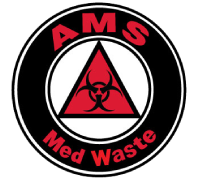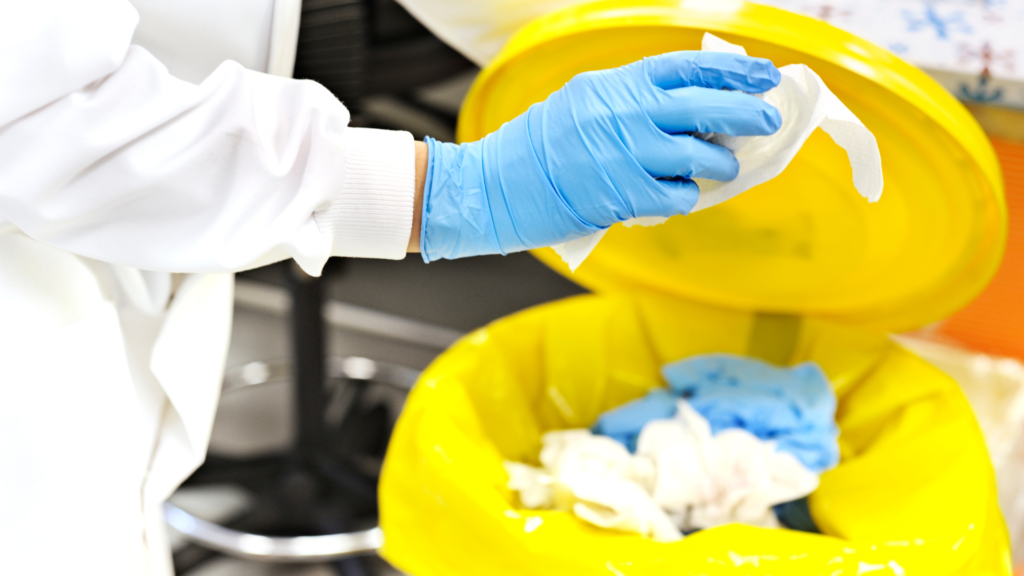When it comes to handling hazardous healthcare materials, chemotherapy waste disposal requires specialized attention, expert knowledge, and strict regulatory compliance. Healthcare providers in oncology, pharmacy, and veterinary settings must ensure that their waste disposal partner can manage chemotherapy waste safely, legally, and efficiently.
Here’s what to look for when choosing the right chemotherapy waste disposal partner.
1. Clear Understanding of Trace vs. Bulk Chemotherapy Waste
An experienced provider should clearly distinguish between:
- Trace chemotherapy waste: Includes items like empty IV bags, used gloves, gowns, and tubing that have come into contact with chemotherapy drugs.
- Bulk chemotherapy waste: Includes containers holding more than 3% of the original chemotherapy drug, such as partially used vials or expired medications.
Proper classification ensures correct handling and compliance with hazardous waste regulations.
2. Proper Waste Segregation and Containerization
Effective chemotherapy waste disposal starts with safe and compliant waste segregation. Look for a provider that supplies:
- Color-coded containers (typically yellow) specifically labeled for trace chemotherapy waste
- Leak-proof, puncture-resistant containers for secure containment
- DOT-approved shipping containers for transport of hazardous waste
These safeguards minimize risk to healthcare staff and patients, and ensure waste is treated and destroyed appropriately.
3. Regulatory Compliance and Licensing
Your chemotherapy waste disposal provider must be fully compliant with all applicable federal, state, and local regulations, including:
- OSHA (Occupational Safety and Health Administration)
- EPA (Environmental Protection Agency)
- DOT (Department of Transportation)
- RCRA (Resource Conservation and Recovery Act)
They should also provide appropriate documentation, such as manifests, Certificates of Destruction, and proof of chain of custody.
4. Safe Transport and Final Disposal
Because of the hazardous nature of chemotherapy waste, your provider must use:
- Licensed transport services that follow DOT regulations
- Approved treatment methods like high-temperature incineration, which ensures complete neutralization of cytotoxic drugs
This level of care protects public health and the environment while ensuring legal compliance.
5. Staff Training and Ongoing Support
A reliable chemotherapy waste disposal partner should offer training and support services to help your team:
- Properly identify trace and bulk waste
- Use personal protective equipment (PPE) safely
- Follow waste segregation procedures
- Maintain compliance with USP <800> and other healthcare safety standards
Training helps reduce exposure risks and improves overall workplace safety.
6. Flexible Service Options
Your facility’s needs may vary based on volume, frequency, and staffing. Look for a vendor that provides:
- Multiple container sizes and types
- Pickup schedules that fit your workflow—weekly, monthly, or on-call
Flexibility ensures that waste is removed in a timely manner without interrupting your operations.
7. Complete Documentation and Transparency
A trustworthy provider should be fully transparent about:
- Pricing and service fees
- Pickup schedules and availability
- Regulatory documentation, including waste manifests and destruction certificates
Full documentation is essential for audits and ongoing compliance.
8. Environmental Responsibility
Chemotherapy waste is hazardous, but that doesn’t mean disposal can’t be done responsibly. The right partner should:
- Follow EPA-approved incineration practices that reduce emissions
- Avoid landfilling hazardous materials
- Participate in or promote waste-to-energy initiatives
An environmentally conscious approach helps protect the communities you serve.
Why AMS MedWaste is a Trusted Chemotherapy Waste Disposal Partner
At AMS MedWaste, we provide comprehensive chemotherapy waste disposal services to healthcare facilities across Northern Illinois and Southern Wisconsin. Our team is fully licensed and trained to handle both trace and bulk chemotherapy waste with the highest standards of safety and compliance.
Our commitment to safety, regulatory compliance, and environmental responsibility makes AMS MedWaste a reliable partner for oncology clinics, infusion centers, pharmacies, veterinary practices, and more.
Contact Us for Chemotherapy Waste Disposal Services
If your facility handles chemotherapy agents, don’t leave compliance to chance. Work with a local, licensed provider that understands the unique needs of facilities in Northern Illinois and Southern Wisconsin.
Contact AMS MedWaste today to learn more or request a quote for our professional chemotherapy waste disposal services.




